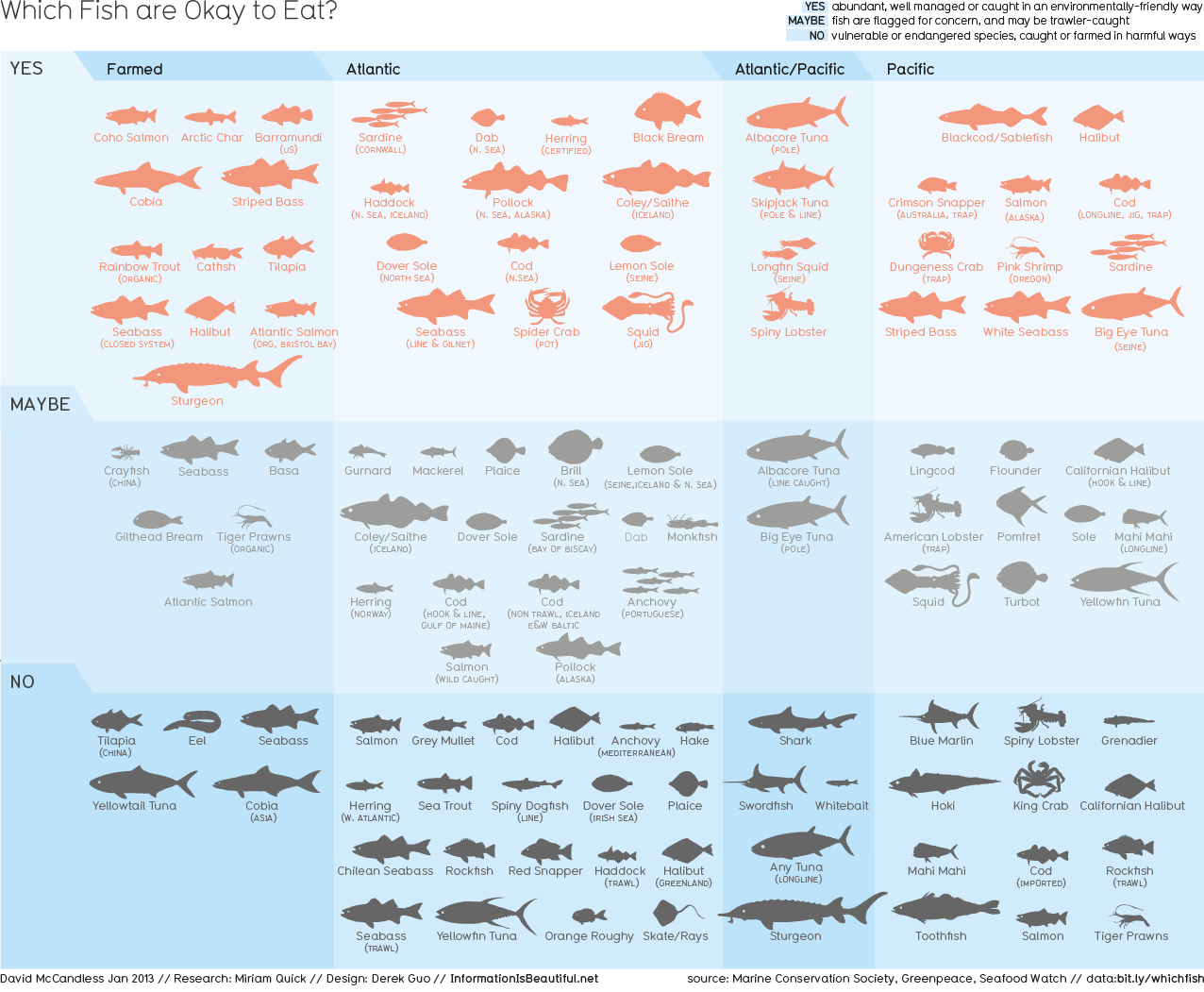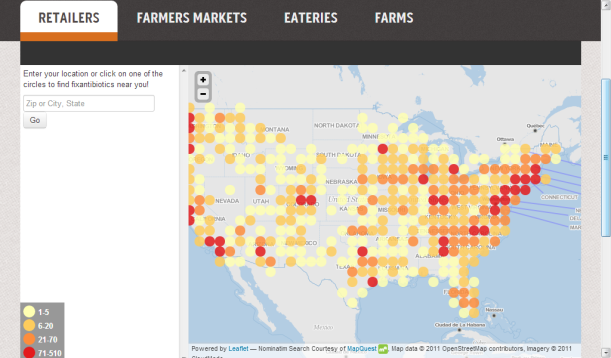I have not one, but two great links for you today to help you in your consumption decisions. The first one refers to the latest research on fish stocks and gives a (very pretty!) overview of which fish is okay to eat and which stocks we should let recuperate. Click through to get to the full-sized image!

I especially loved the transparency involved – the spreadsheet with all the references is openly available and can be found here.
Secondly, Fix Antibiotics is a website specifically for American consumers who do not agree with the wide-spread practice of giving antibiotics to animals and wish to boycott those practices. At this part of the website Real Time Farms, you can find locations that offer meat raised without antibiotics based on your zip code – saving you time and effort to drive around and find the best option. The tool even differentiates between retailers, farmers’ markets, eateries and farms. The information gathered on what amounts to a giant map is all dependent on crowd-sourcing efforts, and the developers welcome feedback from users on new restaurants they have gone to that offered antibiotics-free meat, or new farmers’ markets that just popped up. Actually, Real Time Farms is such a cool concept (their slogan: “A crowd-sourced nationwide food guide. We enable you to trace your food back to the farm it came from, whether staying in or dining out, so you can find food you feel good about eating.“) that I think I will dedicate an entire blog post in the near future to them. Keep an eye out!
Bonus: If you want to know more about the latest developments in antibiotics use, this article might be helpful to you as well.

I don’t get it. What makes one farmed fish better than another?
I didn’t look through all the references, but in general I think there are huge differences in aquaculture practices. I would assume that some farmed species require more fish-based feed than others (which would again affect the wild fish population since that is where most feed comes from), some might be raised in areas that are ecologically sensitive and should not be overpopulated with a single species, some might be more prone to diseases when kept in close quarters which then might be transmitted into the wild… These are just guesses, but I don’t think that farmed fish always = farmed fish.
Thank you for posting these links!
I often look out for updated guides for sustainable fish for my boyfriend!
I used to only eat fish that was abundant and sustainably caught, before going practically vegan to be more sustainable. 🙂
Regarding the antibiotics in animal production, it is important to differentiate between routine, prophylactic use and use for treatment of actual illnesses in livestock: and the Fix Food site does do that. Also consumers in the UK are often surprised to hear that “organic” livestock can be treated with antibiotics, just like “conventional” livestock, it’s just the preventative and routine use that is different.
Thanks for highlighting these issues: your writing is great and you always find interesting topics.:)
Thanks for your comment, Kay! Good point about the actualities of antibiotic use, I think I mentioned some of it here (). And thank you for reading!
Antibiotic use in animals has been an issue I’ve been attempting to be more aware of! The mention of it here has made me want to look into it even further in Australia. I wish there was a Real Time Farms here though, it would make life a lot easier!